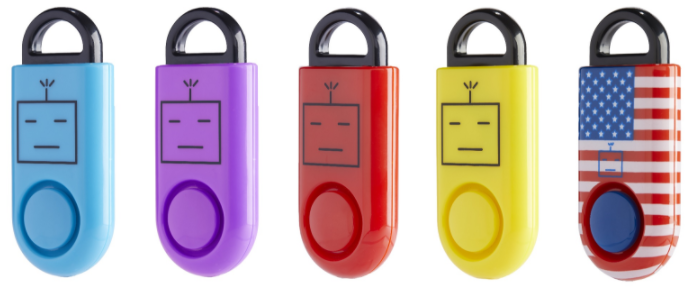Technology to replace pepper spray
Users can pull a tab to activate the eAlarm.
Although college campuses are often thought of as one of the most common areas assaults take place, most do not allow students to carry pepper spray.
This was just one of the many factors that came into play when BASU, an innovative products company, created the eAlarm and began selling it in July of 2015.
“There is a great deal of technology available to address your personal fitness, and a great lack of technology to address your personal safety,” said Jill Turner, public relations director at BASU. “The goal of BASU is to be the integration of safety and technology.”
The eAlarm, which claims to have surpassed the market standard, is a 120-dB alarm about the size of a flash drive that weighs less than an ounce. If the user feels threatened, they simply pull a tab on the end and the alarm is activated.
The Oakland University Police Department purchased 50 eAlarms in Fall of 2017 and have been handing them out to students at OUPD events on a trial basis.
“Having the tools that can maybe assist with protecting yourself are good to have,” OUPD Lt. Nicole Thompson said. “This is just another tool in your toolbox that you can use in those types of circumstances.”
The eAlarm’s uses range from crime deterrent to intrusion alert, and play off the scenario where those wishing to do harm will be too intimidated to proceed due to the threat of others around hearing. Ishita Shah, a PR associate at BASU, reported that eAlarm users have successfully prevented robbery as well as sexual assault.
According to a study done by the University of North Carolina at Charlotte, approximately 82 percent of burglars will first seek out if a home has an alarm system, and around 60 percent will move on to an easier target if it does.
The eAlarm+ was first developed for those who are more interested in outdoor activities, and therefore has a more durable casing with a 130-dB alarm that can be used as tripwire or to scare off wild animals such as wolves and bears. But it’s public safety use has made it popular to many people.
BASU’s most current product is the eAlarm911 which is set to be released in September. This will have all the features of the eAlarm but will also incorporate a signal that will alert authorities to one’s emergency and location using GPS tracking.
“Our approach for violent crime was to provide deterrent first and foremost, and then the natural progression from there is to get emergency assistance to your location to help you,” Turner said.
“People put alarms on their homes and their cars, but not themselves or their children. Why not? Life is much more valuable, I think,” said BASU CEO Sam Mansen.
For more information on the eAlarm, visit basu.com.




